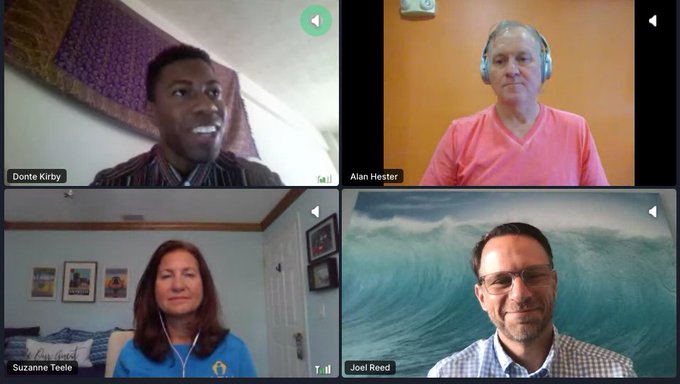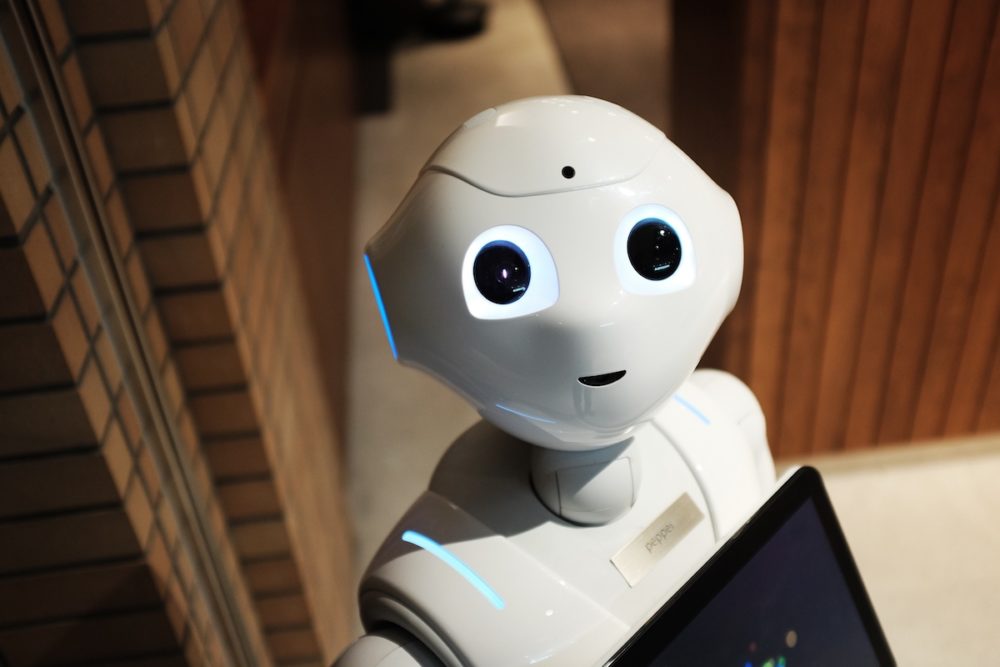Will robots replace jobs held by humans?
As automation capabilities advance, this has been a common question in the technology world. But alongside that consideration, some robotics experts think automation, artificial intelligence and machine learning can help us be better humans in the long run.
Alan Hester, president of intelligence automation company Nividous, develops robots that automate tasks by interacting through the user interfaces of software in the same way that humans would do it. He said these software robots automate mundane humans tasks to take things off of their plate that they don’t want there to begin with. Bots aren’t coming in and taking jobs wholesale, Hester said.
“When it first started out, I think everyone was really screaming that ‘the sky is falling, the robots are coming for our jobs,’ and there was a lot of panic,” Hester said at Philly Tech Week 2020 presented by Comcast’s Introduced by Technical.ly conference. “However, I think that as we have seen projects actually be implemented and realize the real ramifications that the bots have on the work done by humans, is that it’s really deemed to be more of an advantage than a disadvantage now.” (Big caveat: service jobs.)
“The three Ds” phrase used in the robotics industry breaks down the use of automation: dull, dirty and dangerous, relating to tasks in the workplace that machines are designed to automate. Joel Reed, executive director of the Pittsburgh Robotics Network, explained some work he’s done with robots that would check inventory and fulfill warehouse orders so staff didn’t have to. In order for there to be better robots, people need to acquire better education about automation, he said.
“Automation’s been around for at least 500 years,” said Suzanne Teele, head of marketing and communications at the Advanced Robotics for Manufacturing Institute (ARM). “We’ve been going through these periods of automation for forever. We’ve always looked at ways to be more productive and to take humans out of those situations where jobs are dull, dirty and dangerous.”
Teele’s work at ARM focuses on figuring out what people can do to improve better use of robots, especially in manufacturing; those discussions start with the three Ds. Humans are so nervous about automation now because when people go to school for a specific trade, they can’t stick to what they learned in the classroom because automation is rapidly growing, Teele said.
“What we have is a real challenge from an education standpoint where we don’t have a lifelong learning model that allows people to easily adapt to the type of software Alan is creating,” she said. “We still have an education model that assumes that if you go to school to be an accountant, you’ll be an accountant for the rest of your life using the same knowledge that you got in those four years of education. I think that that conflict that we see of, ‘It’s great and it’s really scary,’ is a result of those two factors.”

Hester said the coronavirus pandemic has been an interesting spark for improving the integration of automation with human-centric workplaces. There’s been a “huge rush” for the adoption of automation technologies because of unemployment and the brewing recession.
“Especially companies that are really trying to scale and grow, this gives them the ability to not just fill the current needs, but look at ways they can scale up their companies without requiring them to add a huge amount of people to do it,” he said.
There’s a widening widening skills gap between manufacturing jobs that need to be filled and the skilled talent pool capable of filling them. Because of this skills gap, Deloitte and The Manufacturing Institute estimated in a report that there will be 2.4 million manufacturing positions unfilled between 2018 and 2028 in the U.S. Teele said this is a huge opportunity to increase manufacturing convincing the younger tech-savvy generation to embark on career paths dealing with robotics and automation.
“Until we get people to realize that working with robots is cool, because they’ve been working technology all this time anyways, we’re going to continue to have these shortages, and we’re going to continue to have this perception that robots are bad,” Teele said.
Teele further shared some skills professionals should have in this industry, while Reed addressed what can be done in this industry to address wealth inequality. Reed also recommended we move away from terms like machines and robots to lessen the spooky sci-fi association with this industry.
These experts only brushed the surface of what robotics can do to improve human life, but above all, they see positive progression. One thing Hester, Reed and Teele emphasized was that people should never stop learning, as education is at the helm of this integration between robotics and humans.
“In a positive way, it actually ends up being a real driver for employee satisfaction in a lot of companies because people are more engaged with their jobs, they’re more excited to come to work, because they’re doing the things they want to do and the things they are best at,” Hester said.







